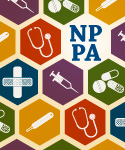December 8th, 2017
Trafficking: Taking Care of Sarah
Alexandra Godfrey, BSc PT, MS PA-C
Sarah The neighbors called the police when they heard screaming. An officer discovered her hiding in a closet in a trailer. In the emergency room bay, I find Sarah naked except for a T-shirt. Her legs are drawn up, arms wrapped around her knees, head down. She looks severely malnourished, and her teeth are broken […]
October 17th, 2017
Emergency Medicine: A Life of Interruption
Alexandra Godfrey, BSc PT, MS PA-C
Emergency medicine is a life of interruption. Physicians, nurses, PAs, radiology techs, registration clerks: we are all constantly interrupted or interrupting. Unfortunately, interruptions and distractions and the consequent attention shift may lead to error. Sometimes, we fail to return to the original task, make an error in that task, or waste time on less urgent […]
September 15th, 2017
Curbside Consultations: Checks and Balances
Alexandra Godfrey, BSc PT, MS PA-C
A 34-year-old male presents to the emergency department with right arm weakness. He woke up 2 days ago unable to move his arm. The patient reports having hypertension but has no history of diabetes, stroke, cardiac disease or tobacco use. He drinks alcohol daily. The patient complains of numbness and tingling in his arm. He […]
August 3rd, 2017
“As I Lay Dying” — Patient Readmission and Non-Compliance
Alexandra Godfrey, BSc PT, MS PA-C
As I tie the last knot in a neat row of nine sutures, the night nurse calls me to room two. I drop my hemostats, peel off my gloves, and tell my patient I will be back. Across the hall, I find a girl thrashing around the gurney, chest heaving up and down, hands clasped around her […]
June 20th, 2017
Mending Broken Hearts: A Profile of a Heart Surgeon
Alexandra Godfrey, BSc PT, MS PA-C
“Resilience makes space for feelings. It’s different from depersonalization—something that we see in medicine today. The depersonalized response to tragedy is ‘too bad, so sad, get on with it.’ Depersonalized physicians believe feelings are too risky and painful, so they can’t imagine that feelings exist in others.”—Ross Ungerleider, MD Ross Ungerleider, pediatric cardiothoracic surgeon at […]
May 11th, 2017
Leaving Against Medical Advice (AMA): A Clinician’s Dilemma
Alexandra Godfrey, BSc PT, MS PA-C
“You’ll have to sign out against medical advice (AMA) . Your blood pressure is high.” The ER physician stood in the doorway of my room. “What difference would it make now?” I asked. The doctor fiddled with the cuffs of his white coat, then glanced at his cell phone. I picked up my car keys. “High […]
April 10th, 2017
Pulmonary Embolus: Evaluating the Five Ps of PE
Alexandra Godfrey, BSc PT, MS PA-C
Years ago, my physician father said to me; “If something does not make sense, if you struggle to determine the pathology, consider pulmonary embolus (PE).” More recently, an ER physician colleague offered me the following advice: “If you think about PE, test for it.” Of course, an astute clinician places both pieces of wisdom into context. I am not going […]
March 1st, 2017
Listening to Bowel Sounds: An Outdated Practice?
Alexandra Godfrey, BSc PT, MS PA-C
Medical programs teach us that listening to bowel sounds is an essential part of the physical examination of the abdomen, especially when the differential includes ileus, small bowel obstruction, diarrhea or constipation. Woe betide the student who fails to auscultate the abdomen of patients with these presentations. Yet firstly there’s little supporting evidence for this maneuver, […]
January 26th, 2017
Can Medical Professionals Ask Patients About Guns?
Alexandra Godfrey, BSc PT, MS PA-C
A student recently asked me if clinicians can talk to patients about gun ownership and safety. Her question triggered my month-long search for data to provide a solid evidence-based response. Alas, my research did not unearth such an answer. But I did find endless writing that discussed this increasingly contentious question in terms of rights, […]


